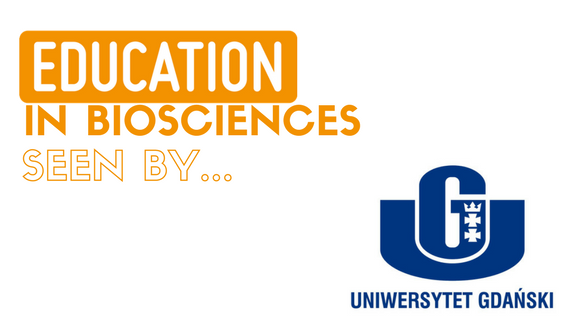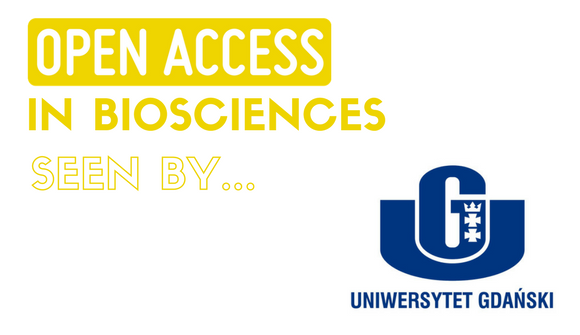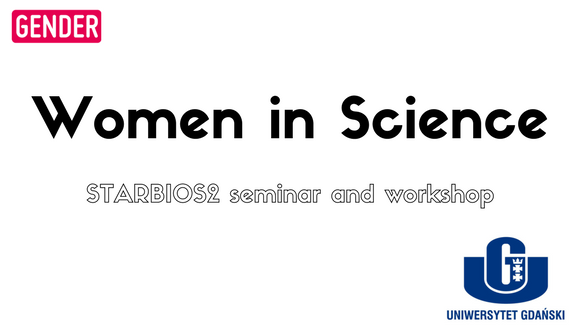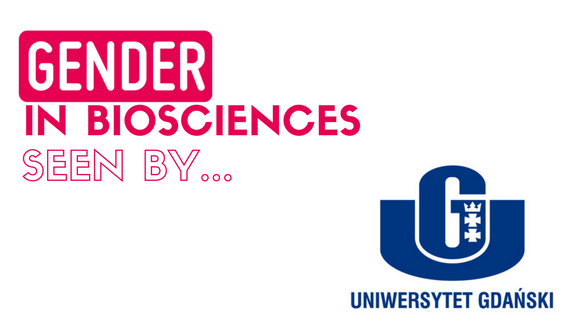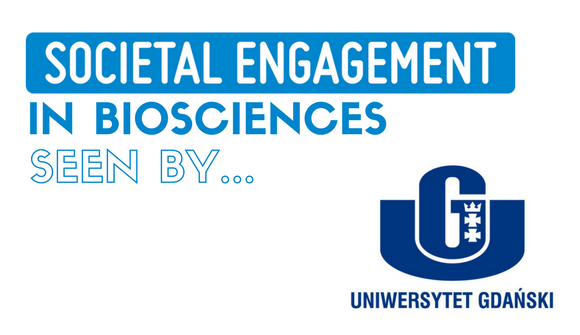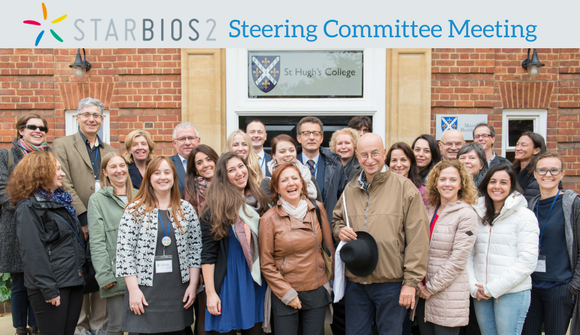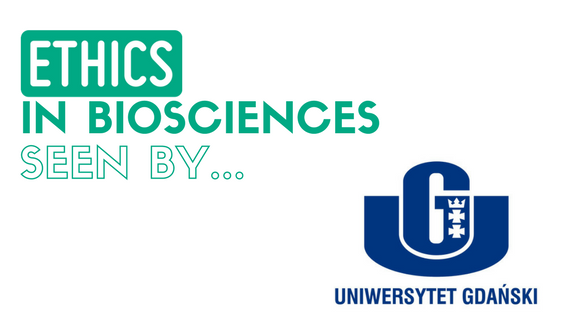How do you understand Education in biosciences research? Education is a vital aspect of the Responsible Research and Innovation concept. In order to build responsible relations with the society, there is a need for a certain level of science literacy in the society. On the one hand the scientists need to be aware of the need of communicating with other members of society, on the other hand the society needs educational interventions in order to be able to receive the information from scientists. What are the current standards and actions to achieve better Education on biosciences in your country and in your University? In Poland there are numerous initiatives to popularize science among society, e.g. science picnics, science festivals, open days in research institutions. Also some media such as TV, newspapers or radio broadcasts focus on familiarizing the society with the new discoveries of science. At University we organise special events such as debates on GMO, Biologists Night, Baltic Science Festival and other in order to broaden knowledge on biotechnology. Also special seminars and lectures on current problems in science are organised regularly. What are you aiming for with the implementation of the STARBIOS2 actions towards better Education standards for your institute? Our goal is to raise awareness about the issues covered by the RRI concept among stakeholders in Poland. An awareness raising campaign will be promoted locally at the Intercollegiate Faculty of Biotechnology UG & MUG, at the University of Gdańsk and beyond and will be dedicated to specific …
Open Access in Biosciences Research, Gdansk University
How do you understand Open Access in biosciences research? Open Access (OA) is providing a free-of-charge access to research results – scientific publications – via online access. Individuals and institutions that would otherwise not easily have access to research findings gain knowledge about new discoveries when these information are disseminated in OA. This increases the benefit for society: research findings can be accessed, used and reused, further developed by scientists from different backgrounds and disciplines as well as by non-scientists. What are the current standards and actions to achieve better Open Access in your University and in your country? The Polish Ministry for Science and Higher Education supports OA and recommends its implementation by research institutions. Several reports have been published on the state-of-the-art of OA in Poland. There are units and initiatives strongly supporting the development of OA in Poland, such as Platform for Open Science, Coalition for Open Education. Recently, the University of Gdańsk has adopted its policy on OA. What are you aiming for with the implementation of the STARBIOS2 actions towards better Open Access standards for your institute? Our goal is to support an institution-wide strategy towards improved OA to the results worked out by our scientists. We believe that OA is only possible with the joint efforts of authors, editors, librarians, supporting staff, and funders. In our project activities we focus on rising awareness among scientists on the importance and benefits of OA. At the same time, we conduct actions aimed at educating authors …
WOMEN IN SCIENCE – STARBIOS2 events at Gdansk University
As a part of the STARBIOS2 activities, the University of Gdansk organised two events, dedicated to Women in Science. Seminar: Women in Science An open seminar dedicated to women in science took place on 1st December 2017 at the Intercollegiate Faculty of Biotechnology of University of Gdansk. The meeting opened by Prof. D.Sc. Krzysztof Bielawski, a supervisor of the STARBIOS2 at the University of Gdansk, was moderated by Prof. D.Sc. Ewa Łojkowska, an outstanding woman researcher and a great supporter of women science career development, both as a head of The Laboratory of Plant Protection and Biotechnology at University of Gdańsk and as a Chair of the Jury of the “L’Oréal-UNESCO for Women in Science” programme. In the first part of the meeting Dr Natasza Kosakowska – Berezecka and Dr Magdalena Żadkowska from University of Gdansk discussed and presented the results of the report Gender gap in Biosciences that they had conducted within STARBIOS 2 actions at the IFB of UG. The second presentation was led by a guest speaker Dr Magdalena Król University Professor at Warsaw University of Life Sciences, a renowned researcher granted several scientific prizes and distinctions including L`Oreal & Unesco “for Woman in Science” habitation fellowship. Dr Magdalena Król presented difficult aspects of women careers’ development in the past and today talking about its challenges and perspectives. The audience raised several questions and issues after both presentations. DIVERSITY MANAGEMENT IN A TEAM An interactive workshop was conducted the same day by Dr Natasza Kosakowska–Berezecka and Dr Magdalena …
Gender in Biosciences research in the University of Gdansk
How do you understand “gender” in Biosciences research? Our focus on gender is intersectional as it overlaps with other important roles women and men undertake: The gender of the researcher: it is important to bear in mind the number of male and female staff at the Intercollegiate Faculty of Biotechnology UG & MUG (IFB) and of different obstacles to their research careers that might result from gender stereotypes that influence the concepts of what men/women should and shouldn’t do. The gender of the student: we are aware of IFB being a faculty with a majority of women, so we know it is good to design the teaching programmes in such a way as to attract also more male students and give equal chances for both genders. The gender and the management level in institutions: it is necessary to highlight that gender stereotypes have a strong impact on leadership structure, so we understand the meaning of tailored training in leadership skills. The gender and role-models: in our opinion well promoted roles models of both male and female scientists encourage researchers to take up new tasks and that work-life balance has a positive effect on facilitating gender equality in institutions. What are the current standarts and actions to achieve better gender equality in Gdansk University and in Poland in general? The University of Gdańsk has experience in introducing the standards of gender equality policy promoted by the EU. Researchers take part in projects financed by external funders which focus on implementing gender …
Societal Engagement in Biosciences, seen by the University of Gdansk, Poland
How do you understand Societal Engagement in biosciences research? Scientists have a responsibility to engage in public dialogue about the implications of biosciences findings and to help distinguish between socially beneficial and socially harmful applications. The relation between science and society, including politics, is the base of social and economical development. The state decides about directions of development by legal and financial instruments, but it also suffers consequences of the lack of social acceptance of new technology. Bioscience is a cutting-edge area of science in which the pace of progress is perhaps faster than society’s capacity to deal with its ethical and social implications – therefore needs to be addressed properly. What are the current standards and actions to achieve better Societal Engagement in your University and in your country? State scientific policy is not consistent in defining the role and function of scientific communication. There is a great discrepancy between ambitious goals set for research units and academics in this area and financial support or the raising of the rank of activity in this field in the periodic assessment of a scientific unit or the processes of scientific career development. Popularization of science is part of the Development Strategy of the University of Gdańsk until 2020 – in the field of strengthening of the university’s ties with the economic and social environment of Pomorskie. What are you aiming for with the implementation of the STARBIOS2 actions towards better Societal Engagement standards for your institute? The Intercollegiate Faculty of Biotechnology …
Steering Committee Meeting of STARBIOS2 partners in Oxford
On the 4th – 5th of October 2017, all the partners of the STARBIOS2 project came together for the Steering Committee Meeting at St Hugh’s College of the University of Oxford. Each of the partners presented their updates on the project and plans for the future on implementing 5 key issues of RRI (ethics, education, open access, societal engagement, gender) at their institutions. There are 12 partners involved in the STARBIOS2 project, including 6 Universities, implementing Action Plans, 3 support teams and 3 international partners. The coordinator of the STARBIOS2 project is Prof. Vittorio Colizzi from the University of Rome – Tor Vergata (UNITOV). Work Packages Each of the partners are responsible for different Work Packages within the project: WP Number WP Title Lead beneficiary Country WP1 Ethics Requirement UNITOV Italy WP2 Action Plan for RRI of the University of Tor Vergata UNITOV Itay WP3 Action Plan for RRI of the University of Oxford UOXF UK WP4 Action Plan for RRI of Primorska University UP Slovenia WP5 Action Plan for RRI of the University of Bremen and related road map Uni-HB Germany WP6 Action Plan for RRI of Agrobioinstitute Sofia ABI Bulgaria WP7 Action Plan for RRI of the Intercollegiate Faculty of Biotechnology UG & MUG, UG UG Poland WP8 Technical Assistance LSC Italy WP9 Learning Process on RRI implementation in biosciences and set-up of a RRI model UNITOV Italy WP10 Monitoring and Assessment AU Denmark WP11 Communication and Dissemination SPARKS & CO France WP12 Project Management UNITOV Italy Formal …
Ethics in Biosciences, seen by the University of Gdansk, Poland
Prof. Krzysztof Bielawski – is a Professor at IFB. He is also Vice-Rector for Development at University of Gdańsk (UG) and has a PhD in medical biology and D.Sc. in biological sciences. Prof. Bielawski is a full-professor in biological sciences since 2011. 1. How do you understand “Ethics” in biosciences research? Ethics plays a vital role in research, especially in biosciences. Two aspects are to be taken into account in this respect. On the one hand, we have ethics in the sense of research ethics, valid for any research area. This includes issues such as research integrity, resolving conflict of interest, equality, so called “good and bad science” issue, etc. On the other hand, specific ethical issues affect the work of bioscience researchers related e.g. to the use of animals, human tissues, embryos or GMO, and have to be dealt with in a responsible way in order to make research safe, reliable and acceptable. 2. What are the current standards and actions to achieve better Ethics in Gdansk University and in Poland in general? Ethics in biosciences is regulated in Poland by rules introduced on the national level. Researchers need to observe laws and regulations regarding the use of animals, human tissues as well as GMO or GMM. Specific ethical consents need to be obtained from the respective national or regional bodies as a proof that the institution and the projects complies with the required procedures. In some cases these consents are issued e.g. by the Ministry for Environment in other …




